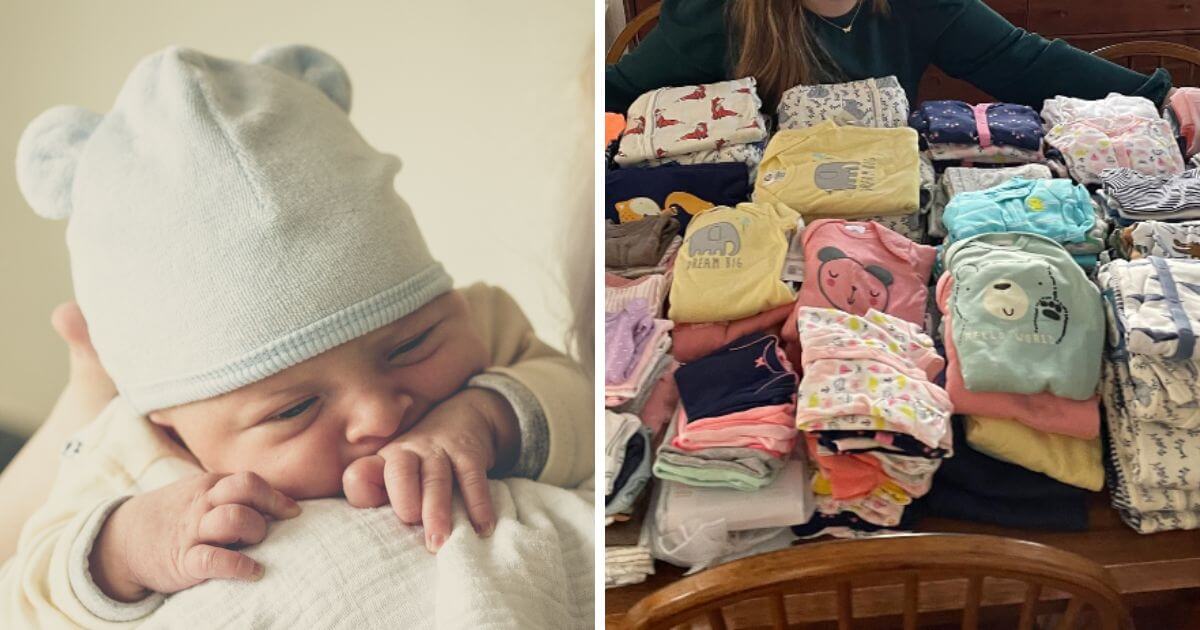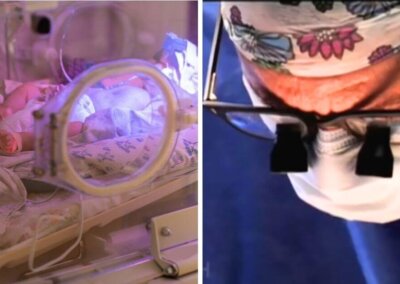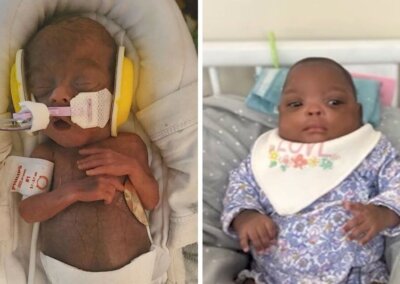Inspired by an act of kindness of a nurse, a mum who gave birth prematurely has since donated over a thousand onesies to help other mums of prematurely born babies.
Meghan Block gave birth to her daughter Caroline at 34 weeks. Whilst Caroline is now four years old, her start in life was challenging and she had to spend time in the neonatal intensive care unit (NICU).
Block recalls that Caroline “needed several medical interventions that we thought we were prepared for and ended up in the NICU. That experience for me was just incredibly traumatic as her mom”.
Block said that she found visits to her daughter overwhelming in the early days as she saw the tubes and wires coming from Caroline’s body.
Kind nurse buys clothes out of her own money
One day, when her dad went to visit her, Caroline was wearing clothes. When he asked where the clothes had come from, he discovered that the nurse who was looking after Caroline had dressed her in an outfit she had bought with her own money.
For Block, seeing Caroline in clothes was a turning point. “Seeing her in clothes really humanized her in some ways for me. It was really, really healing”, Block shared.
“The gift that our nurse gave us, she didn’t present it as a gift. She just dressed my baby. She had her drawer of little baby clothes that she puts on her patients”.
“I just think it’s incredible, but I also feel like it’s not their job to have to do that for us”.
Giving back to other families
Inspired by this kind nurse, once Caroline and her mum were safely home, Block decided to help other families in the same way. She created an Amazon Wishlist of clothes for premature babies, called “Caroline’s Closet”. Now she has donated more than 1,000 onesies to help little babies like Caroline. The ambitious mum’s five-year plan is to offer clothing to every NICU so that anyone can have access to Caroline’s Closet.
Beth Brooks, NICU nurse manager at South Shore Hospital where Caroline was born, said “The simple task of being able to dress your baby is overwhelmingly important to parents”. “It was very healing for her to see her baby in clothes, so she’s given that to these families”.
Improving outcomes for extremely premature babies
A number of key studies in recent years have documented the improving outcomes for extremely premature babies. A 2004 Swedish study found that neonatal survival outcomes between 22 and 25 weeks gestation significantly improve when neonatal hospital staff take a proactive approach in the care of premature babies.
A 2008 study based on a neonatal intensive care unit in London also found that neonatal survival rates at 22 and 23 weeks gestation had improved. In 1981-85, no babies who were born at these gestational ages survived to discharge. However, by 1986-90, 19% did and this increased to 54% in the period 1996-2000.
A study in 2022 found almost four out of five babies born prematurely between 22 and 28 weeks gestation survive to discharge from the hospital. It found that from 2013 to 2018, with infants born between 22 and 28 weeks gestation, “survival to discharge occurred in 78.3% and was significantly improved compared with a historical rate of 76.0% among infants born in 2008-2012”.
Spokesperson for Right To Life UK, Catherine Robinson, said “It’s beautiful to see people giving so generously to these tiny premature babies and making sure that families of babies born early are supported during their time in the NICU and beyond”.












